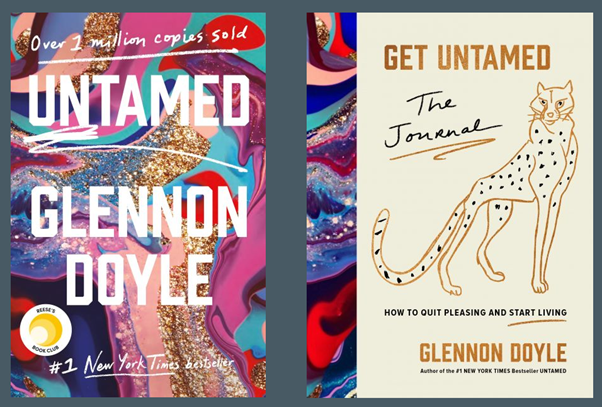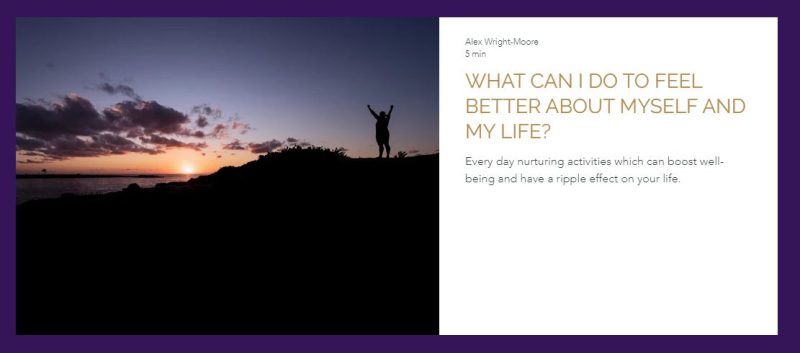Ask A Results Coach: How to stop caring so much about pleasing others

Posted on
Do you need to start putting yourself first?
Enter Alex Wright-Moore, a Results Coach who has kindly offered to answer HerCanberra reader’s questions—and share her knowledge with the HerCanberra audience.
Each month, Alex will explore some of the ways we can better understand what challenges us and empowers us to find solutions.
“For as long as I can remember I have been a people pleaser and it feels like it is in my DNA. It is almost as if I came out of the womb people pleasing! How can I stop caring so much about pleasing others (and what they think) and start pleasing ME?”
For many of us, the long-term personal cost of putting the needs and opinions of others ahead of our own, is a high price to pay for social approval and acceptance.
Yet, early on in our lives, society teaches us that putting ourselves last is necessary if we want to realise the noble ideal of ‘a life lived in service to the common good’.
Generally, we first become aware of this principle at some point during adolescence: be it via our classrooms, books, screens, homes or religious institutions. Sometimes it sneaks up on us and sometimes it is in plain sight. Either way, when we start to take notice, we eventually find ourselves surrounded by romantic stories of heroines and heroes who have earned a meaningful cultural legacy by living selflessly.
This social conditioning is compounded in adulthood when we discover we live in a world that rewards saying ‘yes’. A world which too often glorifies over-work, being online and accessible 24/7 or having a reputation as ‘friendly, easy-going, can-do and considerate’. A world where honest conversations about capacity and healthy boundaries are not as frequent as we need them to be if we are to live authentic, joyful lives.
For anyone who is exhausted by this reality and looking for an alternative path, this month’s column explores some tips on how we can curb our people pleasing ways and embrace a life where fulfilling our personal needs, is essential to living well.
We can recognise that people pleasing is a form of self-sabotage which often leads to playing small with our lives
Whenever we find ourselves stuck in the habit of ignoring our own needs, we generally have a fear of consequences or a sense of moral duty at play. Sometimes it is a fear of judgement, failure or social exclusion. Other times, it is a notion that we are responsible for preserving the well-being and welfare of others who depend on us.
While this can seem like a standard default setting (especially for those who are parents with babies at the centre of their universe) it is actually a learned behaviour which originates in our formative years as a survival instinct. For example, at some point in our youth maybe we were rewarded for putting the needs, opinions and expectations of others first. Perhaps we were praised for being ‘good’, ‘helpful’, ‘hardworking’ or ‘kind’ and this helped us to feel seen, validated and worthy. Or conversely, maybe we were taught to ‘listen, watch and learn’ before we were allowed to ‘speak, do and try’ and this became our framework for understanding the ways of the world.
Irrespective of our personal experiences, we tend to develop an understanding that doing what is expected of us, will keep us safe. But the thing is, anytime our decisions are driven from a place of fear or motivated by a sense of obligation, we place limits on our ability to see the expansive potential of our lives.
So how do we overcome this and create something better? Well, in good news, our people pleasing behaviours are merely habits that we have practiced over time. What’s more, our habits are simply the actions and thoughts we repeat on a regular basis – no more and no less. Thus, with conscious effort and regular practice, our people pleasing behaviours can indeed be unlearned.
To do this, activist and author, Glennon Doyle, suggests we start by asking ourselves a simple question: ‘Who were you before the world told you who to be?”
In her bestselling novel, Untamed, Doyle also dares us to live braver, authentic lives, noting we can often lose sight of who we are when we fall into a pattern of caring too much about what others in the world think or live to please them (be it consciously or unconsciously). The key takeaway? When we finally learn that pleasing the world is impossible, we free ourselves to learn how to please ourselves.
Doyle’s book and read-along activity journal provide a practical ‘how-to’ guide on unlearning people pleasing behaviours and anyone interested can access additional resources here. Similarly, check out Doyle’s We Can Do Hard Things podcast for a dose of weekly inspiration.
We can give ourselves permission to say “no” without feeling guilty
As we mature through the years, it is unsurprising that many of us develop a belief that ‘unselfish living’ is a social skill we must master if we want to flourish in life. But the problem is, this value-system often instils in us the notion that we must ‘sacrifice something’ if we are to live a life of purpose and meaningful contribution. Commonly, that ‘something’ is our right to be selfish – or our ability to say “no” without feeling guilty.
During our youth, we quickly learn that being agreeable and saying “yes” is what the world expects of us if we are to get ahead. Although, this can compound our sense of guilt if there ever comes a time when we need to say “no”. In the words of Sara Lindberg from Headspace, this is because we all like to feel needed and valued. “It’s human nature to seek approval, love, attention, and validation. But when a need to please becomes a constant, exhausting pursuit, it might be time to pause and reflect on why you are seeking approval outside of yourself,” advises Lindberg in The cycle of saying “yes” when you want to say “no”.
Hearteningly, Lindberg insists that mindfulness can be a useful tool to help us tackle this challenge. Moreover, it can be incredibly liberating to move from a reactive mindset where our priority is not upsetting others (or their metaphorical apple-cart), to an empowered mental space of living unapologetically in our truth. “When we learn to pause, take a few breaths, and practice kindness toward ourselves, we may be better able to tune into our internal compass and ask, “What feels appropriate in this situation?”. Then we can get back to living our best lives,” says Lindberg.
This can also help us learn how to live in a headspace of less pressure and greater abundance.
We can prioritise ‘following what feels good’ on a daily basis
When we focus our energy and attention on what we truly want in life, it undoubtedly helps us to live more authentically in our own skin. In turn, living in alignment with our ‘inner knowing’ or ‘inner truth’ can help us to approach our people pleasing habits with less fear and anxiety, creating a ripple effect where we begin to feel worthier within ourselves.
So where do we start when we feel confused, trapped or defined by our people pleasing ways?
Author and inspirational speaker, Esther Hicks, advocates that it can be as simple as finding a good feeling thought and making it our priority to follow what feels good to us on a daily basis. This doesn’t mean we should pretend the challenging parts of our lives don’t exist. But it DOES mean proactively doing more of what we know makes us feel good and caring about feeling good more of the time. When we do this consistently, Hicks advises that we can train our minds into habits of flow and ease, which have the power to have a domino effect on our lives, attracting more of the same.
“Put simply, thoughts are the vocabulary of the brain and feelings are the vocabulary of the body. But how you think and how you feel creates your state of being,” says Hicks. Hence, if we want to empower ourselves to curb our people pleasing ways, we are encouraged to begin by replacing these behaviours with caring about what makes us feel good. This helps us to reprogram our brains and bodies in a way which prioritises what serves us in alignment with who we want to be. For those curious about exploring this further, Hicks speaks more about this here.
Similarly, Dr. John Demartini’s work emphasises that we have the power to change our lives if we change our thinking and Demartini’s free mind-body connection masterclass is useful for anyone wanting to learn more about how our minds and bodies work in unison. Since good feeling actions help our good feeling thoughts gain greater momentum, there are also a few ideas on where to start here.
We can leverage the power of regret to make good future choices
Lastly, you may have heard people proclaim ‘no regrets’ as a philosophy of life, but Daniel H. Pink transforms our understanding about regret in his recent book, The Power of Regret: How Looking Backward Moves Us Forward, challenging us to find ways to turn our regrets into positive lessons in our lives.
“Trying to live without regret is both unrealistic and dangerous… but if we reckon with them in fresh and imaginative ways, we can enlist our regrets to make smarter decisions, perform better at work and school, and deepen our sense of meaning and purpose,” advocates Pink.
This is handy to remember if we ever find ourselves looking back on our lives and regretting our people pleasing ways. Should we ever need reminding, we can feel secure in the knowledge that we have the power to turn our regrets around by:
- Sharing or self-disclosing our regret to help us process it (either with another person or through a writing exercise such as journaling):
- Practicing self-compassion with ourselves and acknowledging that we all inevitably make mistakes as we learn in life; and
- Self-distancing and trying to see the problem from a neutral, fly-on-the-wall perspective which helps us to regulate and understand any emotions attached to our regret.
In doing this, Pink maintains that we can leverage our regrets to get clear on what we truly value the most in life – and invest in a future based on what works for us.
The content in this article represents the individual ideas of the writer alone and outlines general advice only. It does not replace individual, independent or personal advice, mental health treatment and/or crisis support.
Coaching does not prevent, cure, or treat any mental health disorder and does not substitute for therapy from a licensed professional if necessary.
Should you require emergency crisis support, please contact Lifeline on 13 11 14 or see your GP to discuss a mental health care plan which can help you access the support you need.
Want to ask your own question?
Neither Alex Wright-Moore, nor HerCanberra receive any kickbacks, commissions, gifts or fees for mentioning anything contained within.



